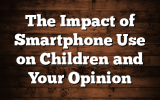Topic: Nowadays, an increasing number of people with health problems are using alternative medicines and treatments instead of visiting their normal doctor.
Do you think this is a positive or negative development?
Model sample Band 8+, Listen here
As of late, there has been an increasing proclivity among those who are unwell to resort to the application of alternative medicines and treatments. While there are occasional instances where these modalities have yielded positive results, I posit that this trend is, on the whole, negative as a consequence of the superiority of modern medicine.
Advocates of alternative remedies assert that historical evidence affirms their efficacy. One pertinent example would be the pervasive utilization of traditional Chinese medicine in Asia. Numerous medicines and treatments within this paradigm have persisted for centuries, if not millennia, and their potency has been substantiated in some instances. Subsequent to their implementation, contemporary health researchers are often able to rationalize their scientific underpinnings. Nevertheless, it is entirely plausible that there are current remedies whose mechanisms still elude us. This pervasive ambiguity ought not to be utilized as a pretext to undermine the overall importance of these modalities.
Notwithstanding this, the overwhelming preponderance of effective medical interventions is of a modern nature. Presently, scientists possess a far more thorough comprehension of the foundational structures of cells, viruses, bacteria, cancers, and sundry other maladies. This has engendered the development of procedures such as surgery, which are indisputably efficacious, as well as the unearthing of seminal medicines like penicillin. There is no question as to why these remedies produce the desired effect, and, as such, it is reasonable to assume that they will only become more sophisticated and safe in the future. By contrast, while traditional medicine may occasionally produce beneficial outcomes, it is concomitantly limited in scope and is unlikely to undergo meaningful evolution over time.
To conclude, apart from a few exceptional cases, alternative remedies are a less viable alternative to treatments and pharmaceuticals that are grounded in scientific rigor. While individuals may elect to experiment with these methods, it is advisable that they maintain their reliance on conventional medical practitioners.
Collocations and phrases:
– growing number of: A phrase that indicates a significant increase in something, often used to introduce a trend or phenomenon.
– alternative medicines/treatments/remedies: These collocations refer to non-traditional approaches to healthcare that may include natural therapies, supplements, or traditional practices from other cultures.
– superiority of modern medicine: This collocation implies that modern medicine is of a higher quality or more effective than traditional or alternative approaches.
– historical evidence: A phrase that suggests that something has been proven or validated by past experience or records.
– traditional Chinese medicine: A specific type of alternative medicine that has been used in China for centuries.
– contemporary health researchers: Refers to scientists and medical professionals who are currently active in the field and conducting research.
– scientific rationale: A phrase that refers to the underlying scientific principles that explain why something works or is effective.
– viable medical treatment: A collocation that suggests a medical intervention is effective or feasible.
– underlying structures: Refers to the fundamental components or mechanisms that make up a system or organism.
– undeniably effective: A phrase that emphasizes the proven efficacy of a medical treatment or intervention.
– crucial medicines: Refers to essential or important drugs that are used to treat serious illnesses.
– limitations of traditional medicine: This collocation suggests that traditional approaches to healthcare may be less effective or have more restrictions than modern medicine.
– less verifiable treatments: Refers to medical interventions that may not have strong scientific evidence to support their effectiveness.
– increasing proclivity among those who are unwell to resort to the application of alternative medicines and treatments: means more sick people are using alternative treatments
– historical evidence affirms their efficacy: means proof from the past shows that these treatments work
– contemporary health researchers are often able to rationalize their scientific underpinnings: means modern scientists can explain why these treatments work
– overwhelming preponderance of effective medical interventions is of a modern nature: means most effective treatments are modern
– indisputably efficacious: means undeniably effective
– meaningful evolution over time: means significant improvement over time
– conventional medical practitioners: means regular doctors

Reply